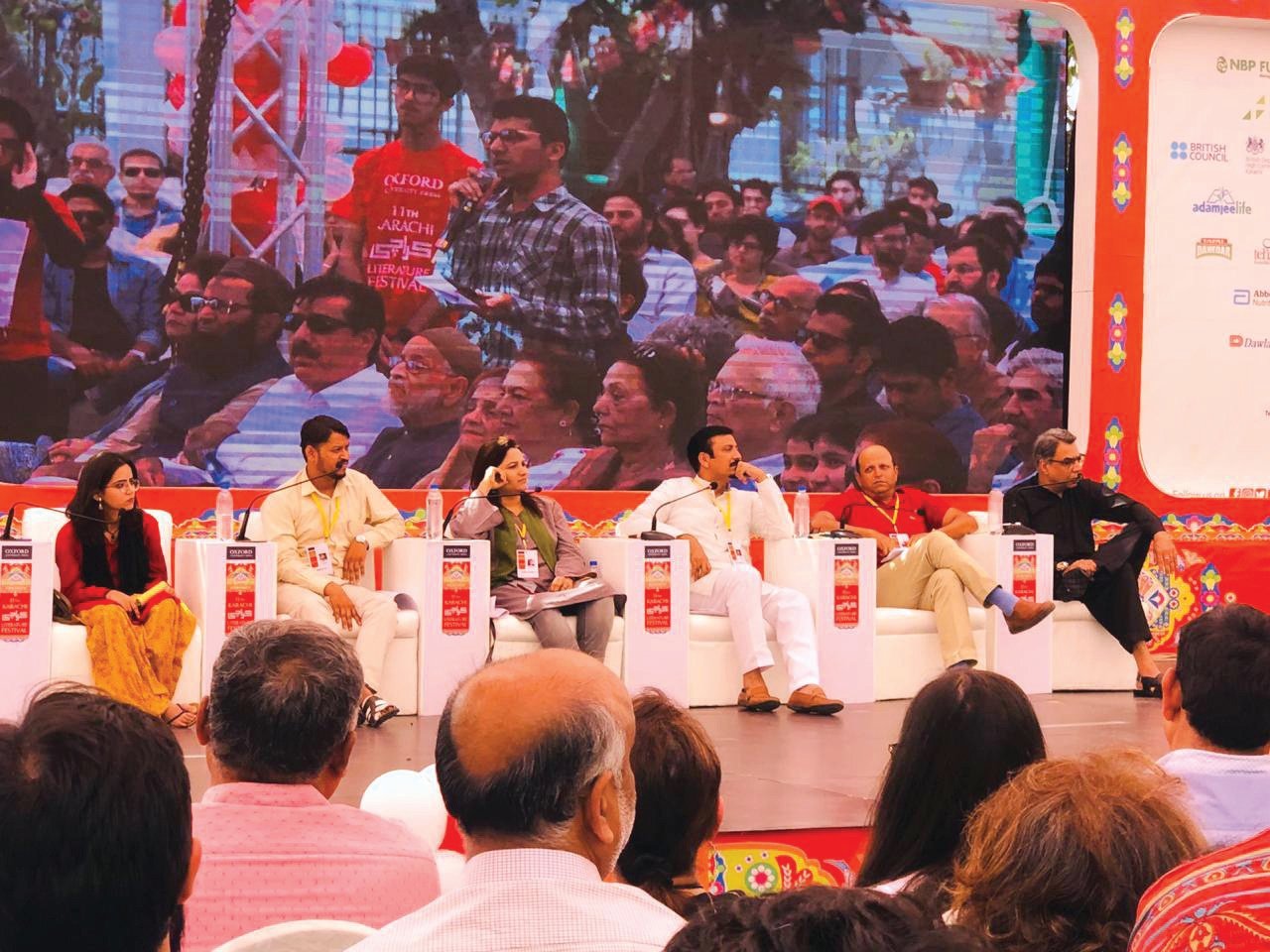
Addressing the audience during a session titled 'Student Politics in Pakistan-Back to the Future', Aurangzeb shared with them that she had not seen any student unions in her life as they were banned before she was born. Still, she said, people asked for her opinion on whether, if restored, student unions would be a cause of violence.
According to Aurangzeb, the perception is widespread because those who have been a part of student unions in the past had tainted student movements and maligned politics to such an extent that the unions were now considered a "curse."
She said that amid all the unrest, capitalists were the only winners, who ruled by dividing people on the basis of gender, language, social class, and ethnicity.
Muttahida Qaumi Movement Pakistan (MQM-P) leader Faisal Sabzwari, joining the discussion, went down memory lane and said that things were quite different at the time he stepped into student politics. There was a power game, played on the basis of ethnicity and language, he said, adding that violence seeped into student politics only after student unions were deprived of their rights and their voices were silenced.
"Unfortunately, in that era, I saw the bullet replacing the ballot," lamented Sabzwari.
However, disagreeing with Sabzwari to a certain extent, journalist Azhar Abbas claimed that hostility and violence had always characterised politics and this was introduced into educational institutes by non-democratic forces, with the intention to later cite it as the reason for banning student unions.
"The Movement for the Restoration of Democracy in 1983 made it apparent for General Ziaul Haq that student politics is the key to democracy and he was advised to ban it," said Abbas. Talking about the extent of violence that mired down educational institutes in those times, Abbas shared that on his first day of university, he saw a fight where a young man was shot and injured.
"[And one of] my senior[s] said to me 'don't worry, he has only received a bullet in his leg,'" he recounted.
A professor of Urdu at the University of Karachi and former student leader Khalid Amin, backing Abbas' views, said it was nearly impossible to make society violence-free. And, for this reason, it was unjust to ban student unions on this basis, he added.
"All political parties are violent, why don't you ban all of them?" he questioned.
Amin maintained that after the suspension of student unions, there was a paradigm shift towards territorial politics, where student wings of different political parties exerted control on universities by force.
On this note, Abbas maintained it was not just the dictators who were responsible for keeping students away from politics. In fact, democratic forces too had not been fans of student unions, he said. A dictator banned them and former president Pervez Musharraf did not restore them, but what about democratic governments, he asked. "It has been 13 years since democracy returned to Pakistan so why have Pakistan Peoples Party, Pakistan Muslim League-Nawaz and Pakistan Tehreek-e-Insaf not restored the unions?"
Adding to this, Sabzwari said that political parties, too, did not want the common people to hold seats in the assemblies, which was only possible through student politics in Pakistan.
In a recent development in this regard, following a country-wide movement for the restoration of student unions, a bill was passed in the Sindh Assembly for the purpose. However, Aurangzeb didn't consider it a significant step towards reviving student politics.
"How can you restore the unions without consulting the main stakeholders, who are students? We do not want dictation from political forces, we want freedom and a platform to raise our voices," she said. "When we demand student politics, we are charged with treason." There was no one to speak for students who were abducted for asking for their rights, she added.
At this, Abbas opined that although no one wanted students to actively participated in politics, students needed to speak about society's problems more than ever before. Student politics is essential for initiating dialogue and debate, he said. And this debate and dialogue would only lead to harmony in society, added Sabzwari.
As the session neared its end, the panellists unanimously called for disarming students and revamping student unions.
Human rights and political activist Naghma Iqtidar also spoke during the session.
Published in The Express Tribune, March 2nd, 2020.
1732503274-0/Untitled-design-(43)1732503274-0-405x300.webp)
1732501636-0/Untitled-design-(42)1732501636-0-165x106.webp)

1732498967-0/Outer-Banks--(1)1732498967-0-165x106.webp)
1732086766-0/BeFunky-collage-(74)1732086766-0-165x106.webp)












COMMENTS
Comments are moderated and generally will be posted if they are on-topic and not abusive.
For more information, please see our Comments FAQ